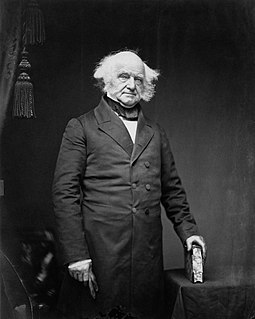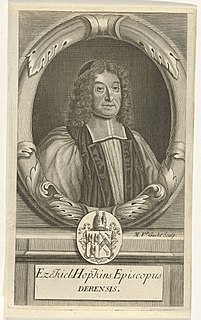A Quote by Matthew Henry
A man that is endued with the powers of reason, by which he is capable of knowing, serving, glorifying, and enjoying his Maker, and yet lives without God in the world, is certainly the most despicable and the most miserable animal under the sun.
Related Quotes
Of all the animal creations of God, main is the only animal who has been created in order that he may know his Maker. Man's aim is life is not therefore to add from day to day to his material prospects and to his material possessions, but his predominant calling is, from day to day to come nearer to his own Maker.
The mystery of God's providence is a most sublime consideration. It is easy to let our reason run away with itself. It is at a loss when it attempts to search into the eternal decrees of election or the entangled mazes and labyrinths in which the divine providence walks. This knowledge is too wonderful for us. Man can be very confident that God exercises the most accurate providence over him and his affairs. Nothing comes to pass without our heavenly Father. No evil comes to pass without his permissive providence, and no good without his ordaining providence to his own ends.
Man with all his noble qualities, with sympathy which feels for the most debased, with benevolence which extends not only to other men but to the humblest living creature, with his god-like intellect which has penetrated into the movements and constitution of the solar system- with all these exalted powers- Man still bears in his bodily frame the indelible stamp of his lowly origin.
We have the idea that God is going to do some exceptional thing- that He is preparing and equipping us for some extraordinary work in the future. But as we grow in His grace we find that God is glorifying Himself here and now, at this very moment. If we have God’s assurance behind us, the most amazing strength becomes ours, and we learn to sing, glorifying Him even in the ordinary days and ways of life.
[Aldous Huxley] compared the brain to a 'reducing valve'. In ordinary perception, the senses send an overwhelming flood of information to the brain, which the brain then filters down to a trickle it can manage for the purpose of survival in a highly competitive world. Man has become so rational, so utilitarian, that the trickle becomes most pale and thin. It is efficient, for mere survival, but it screens out the most wondrous part of man's potential experience without his even knowing it. We're shut off from our own world.
It may be said that myths give to the transcendent reality an immanent, this-worldly objectivity. Myths speak about gods and demons as powers on which man knows himself to be dependent, powers whose favors he needs, powers whose wrath he fears. Myths express the knowledge that man is not master of the world and his life, that the world within which he lives is full of riddles and mysteries and that human life also is full of riddles and mysteries.
Man is a rational animal—so at least I have been told. … Aristotle, so far as I know, was the first man to proclaim explicitly that man is a rational animal. His reason for this view was … that some people can do sums. … It is in virtue of the intellect that man is a rational animal. The intellect is shown in various ways, but most emphatically by mastery of arithmetic. The Greek system of numerals was very bad, so that the multiplication table was quite difficult, and complicated calculations could only be made by very clever people.
That there is one God, who made all things. That he governs the world by his providence. That he might be worshipped by adoration, prayer, and thanksgiving. But that the most acceptable service of God is doing good to Man. That the Soul is immortal. And that God will certainly reward virtue and punish vice, either here or hereafter.
As to the Christian system of faith, it appears to me as a species of Atheism — a sort of religious denial of God. It professes to believe in a man rather than in God. It is a compound made up chiefly of Manism with but little Deism, and is as near to Atheism as twilight is to darkness. It introduces between man and his Maker an opaque body, which it calls a Redeemer, as the moon introduces her opaque self between the earth and the sun, and it produces by this means a religious, or an irreligious, eclipse of light. It has put the whole orbit of reason into shade.
The world is not prepared yet to understand the philosophy of Occult Sciences - let them assure themselves first of all that there are beings in an invisible world, whether 'Spirits' of the dead or Elementals; and that there are hidden powers in man, which are capable of making a God of him on earth.
About halfway through I broke down crying, which I hadn't expected. I was a little ashamed, but only a little;it was her, you see, and she never taxed me with the times that I slipped from the way I thought a man should be...the way I thought I should be, at any rate. A man with a good wife is the luckiest of God's creatures, and one without must be among the most miserable, I think, the only true blessing of their lives that they don't know how poorly off they are.




































